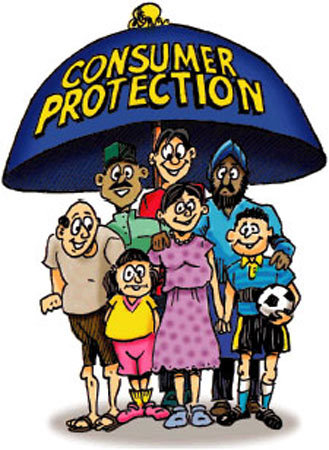
Laws, acts and similar documents usually do not make a riveting read, but you as a Bob Shop buyer or seller would do well to take a peak at the new Consumer Protection Act. The chances are, you will be captivated by the subject matter. Buyers will smile to learn about their new rights, while some of the sellers may gasp at new obligations placed squarely on their shoulders.
The new Consumer Protection Act was signed by the relevant Minister at the end of April 2010. According to the original plan, it was supposed to come into effect in October 2010. However, the implementation was postponed until 1 April 2011 to allow businesses some extra time to comply with the provisions of the Act.
The Act combines previously scattered legislation. It also clearly imposes obligations on anyone who supplies goods and services - from manufacturers and importers to distributors and retailers, as well as those who are involved in promotion of those goods and services.
There is no doubt about it - the new Act favours consumers. Its intention is to protect consumers from exploitation and unfair practices by unscrupulous businesses, and to empower consumers to make wise purchasing decisions.
A great majority of Bob Shop sellers already behave in accordance with the new act. As for those who are apt to forget that consumers deserve fair value, good quality and safety of products - well, it's time for them to start treating their customers like gold, or risk being put out of business by the new law.
Perhaps the most important novelty is the so-called product liability. According to the new Act, the whole supply chain is liable for defects in a product or service. In the past, South African laws were generally seen as favouring the "big guys", leaving the consumers to ponder at the (in)justice of "let the buyer beware" philosophy.
Consumers will now be able to sue in the case of any harm or damage suffered as a consequence of defective goods, without having to prove "wrongfulness", "fault" or "negligence" on the part of the supplier. This shifts the burden of evidence away from the consumer in a court of law.
Businesses may now be held liable for defective products, including software and electronically downloaded products, and may be fined up R1 million or 10 percent of turnover, whichever is greater.
The experts say that the full impact of the new law will be felt only after one year of its implementation. While welcoming the pro-consumer shift, some worry about the impact the new Act may have on businesses, especially small ones. They say that the government is making it even more difficult - and costly - to run a business. Many smaller businesses may not even be able to afford the risk of legal action, especially as the consumer will not have to prove negligence.
In any case, with the new Consumer Protection Act, South African consumers will be among the most protected in the world. Some are probably already making plans to sue Eskom when the food in their freezer goes bad due to an electricity cut, or Telkom when an internet business deal falls through due to sudden death of their ADSL line.
Some highlights of the Consumer Protection Act:
- There will be no more automatic renewals of long-term contracts, for example for cell phones. The providers will need to inform the customer 40 days in advance that the contract is due to expire. If the customer does not respond, the contract will be renewed on a month-to-month basis, with a 30 days cancellation notice.
- Over-selling is now illegal. This typically applies to overbooking flights or hotels. The provider will not only be required to refund the consumer, but will also be held liable for losses the consumer may have incurred as a consequence. The provider will not only be required to refund the consumer, but will also be held liable for losses the consumer may have incurred as a consequence (missed flight connections, car rentals, etc.).
- Product guarantees will be strictly enforced. This can have far-reaching consequences on the otherwise legal grey market (the import of goods, mainly electronics, through channels other than official). Many Bob Shop sellers - and not only they - rely on grey imports.
- When a consumer buys goods on basis of a description, the goods delivered must correspond to what an ordinary alert consumer would be entitled to expect. (Note to Bob Shop sellers: truthful description (as well as image) is a must!)
- Goods to be delivered remain at the supplier's risk until actually delivered. (Note to Bob Shop sellers: pack well and insure parcels!)
- Consumers have the right to block approaches by direct marketers.
Also see: blog posts Grey market and Consumer Protection Act and Consumer is the king